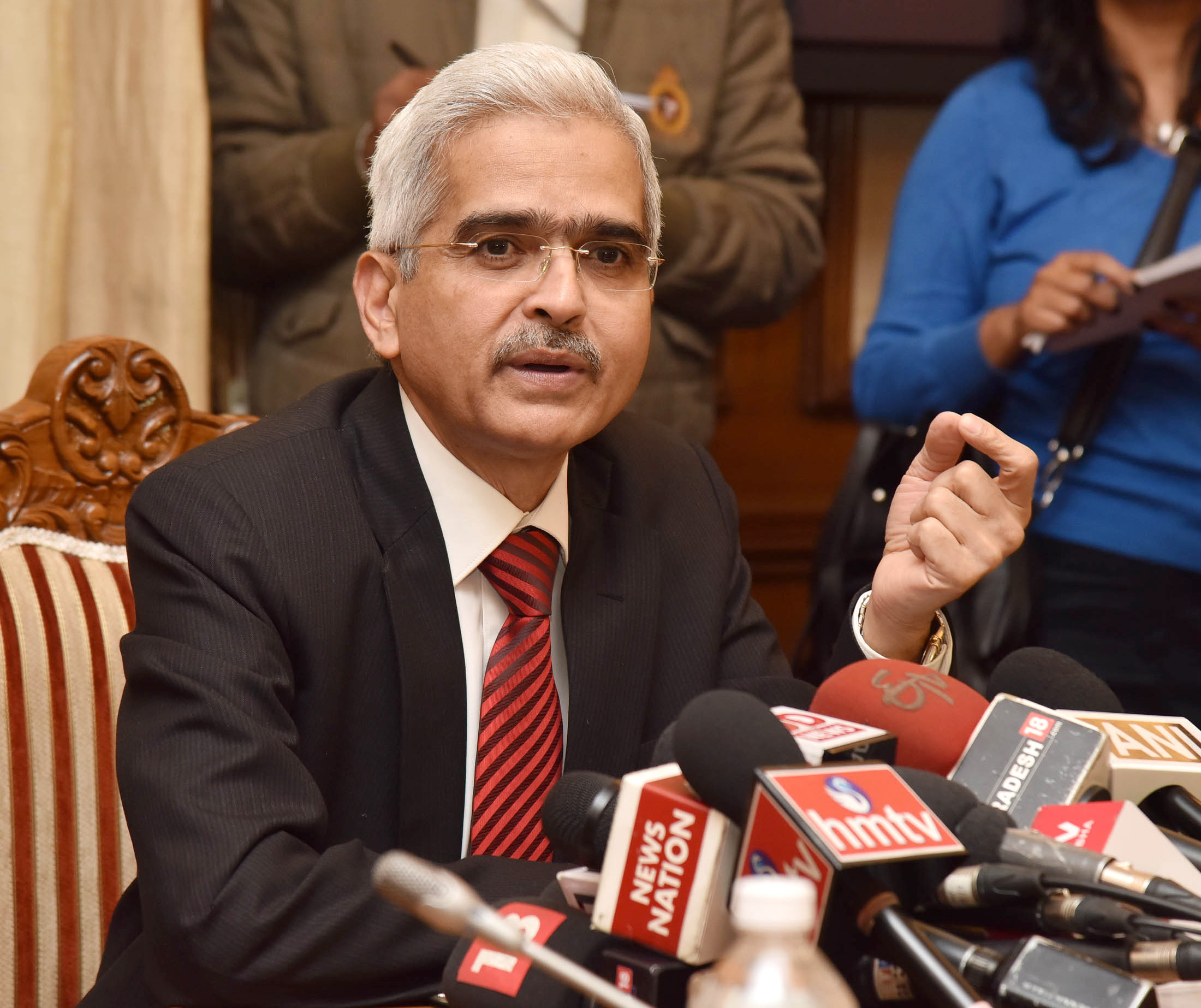India’s record forex reserve also gives a lot of confidence and security to the foreign exchange market, he said
Mumbai, NFAPost: India is much better prepared now to face a taper tantrum kind of situation than it was in 2013, Reserve Bank of India (RBI) Governor Shaktikanta Das said at the finale of the Business Standard-BFSI Summit.
The country’s growth prospects remain strong despite several headwinds, and the RBI will support the government to bring growth back, Das said.
The RBI is confident of its 9.5 per cent growth projection for the Indian economy this fiscal year, even as the global economy may struggle, said the RBI governor. He was in discussion with Business Standard’s Consulting Editor Tamal Bandyopadhyay at the RBI headquarters.
“Definitely, the growth impulses have become stronger. The fast-moving indicators are looking very, very positive. We are on the path of reaching our 9.5 per cent gross domestic product (GDP) growth assessment for the economy this year. It seems to be quite achievable at this point of time,” RBI Governor Shaktikanta Das said, notwithstanding some global headwinds originating from the external sector.
Das said the recent excise duty cuts on fuel were “significantly positive for inflation”. Food inflation now looks to be under control even as the government addressed supply side issues.
However, “core inflation has remained elevated and that is a policy challenge and we are keeping a very close watch over the evolution of the core inflation and fuel inflation,” he said.
Still, the RBI governor expects its projection of 5.3 per cent on inflation for the year will be met while the central bank remains “very careful” in a “fast developing scenario”.
The central bank’s actions are in sync with the evolving situation, and it is now rebalancing the liquidity available in the system. The RBI governor felt “unwinding” the easy policy measures taken during the pandemic had been “much misunderstood”.
“While we were announcing all these measures during the Covid time, we were always constantly assessing the downside risks, the possible fallout, and to the best of our ability we have always built in provisions to see that they’re given out for a finite period, and they automatically get rebalanced back to the original situation,” RBI Governor Shaktikanta Das said.
“I’m not using the word normalisation, I’m using the word rebalancing.” As part of this rebalancing, the RBI has received back most of the money it had pumped in during the initial days of the pandemic.
“Whenever we injected liquidity, there was a sunset clause, and that it was for a finite period. A large part of the total liquidity injected during the pandemic times has already come back to the RBI,” he said.
However, the inflow of foreign funds, which the RBI had accumulate to prevent exchange rate volatility, added more liquidity in the mix. The RBI is mopping up the excess liquidity, estimated at Rs 7.5 trillion, through variable rate reverse repo (VRRR) auctions as well, he said.
GOVERNOR SPEAKS HIS MIND
· Growth impulses stronger; confident of meeting 9.5% growth
· Tax cuts on fuels significantly positive for inflation
· RBI doesn’t need capital from govt
· Not trying to fix bond yields anymore
· Examining big-tech SFB deals on deposit mobilisation
· Cryptocurrencies a very serious concern
“As long as the monetary policy stance is in accommodation, we will have to see that the liquidity is in surplus, but we are trying to rebalance the excessive liquidity in line with the evolving situation,” the RBI governor said. As a result, the overnight and short-term rates have fallen significantly and are hovering at around the reverse repo rate of 3.35 per cent.
Das said the central bank was no longer trying to control the bond yields as it did last year, particularly in the case of short-term rates.
“We are now letting the market function, and determine the yields. We are not doing the kind of active interest rate determination, as we sought to do last year,” the RBI governor said.
India’s record forex reserves also give confidence and security to the foreign exchange market, he said. The reserves are adequate, and put the country “in a very comfortable position”.
Abundant liquidity and soft rates have ensured that housing loans have seen a boom, but each bank’s risk assessment capability must identify undue growth in retail loans, the RBI governor said.
Credit demand from the corporate sector is expected to pick up next year, the governor said as these firms are accessing more bond market, given the softer rates there.
Das allayed fears the RBI does not have enough skills to supervise digital and cutting-edge fintech firms. “We have set up a department of fintech in the department of regulation, we have enough capability, (and) we keep on evaluating our staff and augment our staff skills.”
“From the regulation point of view, we are studying the business model. We are studying what kind of agreements there are between small finance banks and digital platforms. What kind of regulatory challenges they may give rise to? If required, the RBI will come up with additional regulatory guidelines.”
The central bank has concern about cryptocurrencies and feels these private virtual currencies can undermine the macroeconomic and financial stability. The RBI has given a detailed presentation to the government in this regard, which is getting worked upon, he said.





